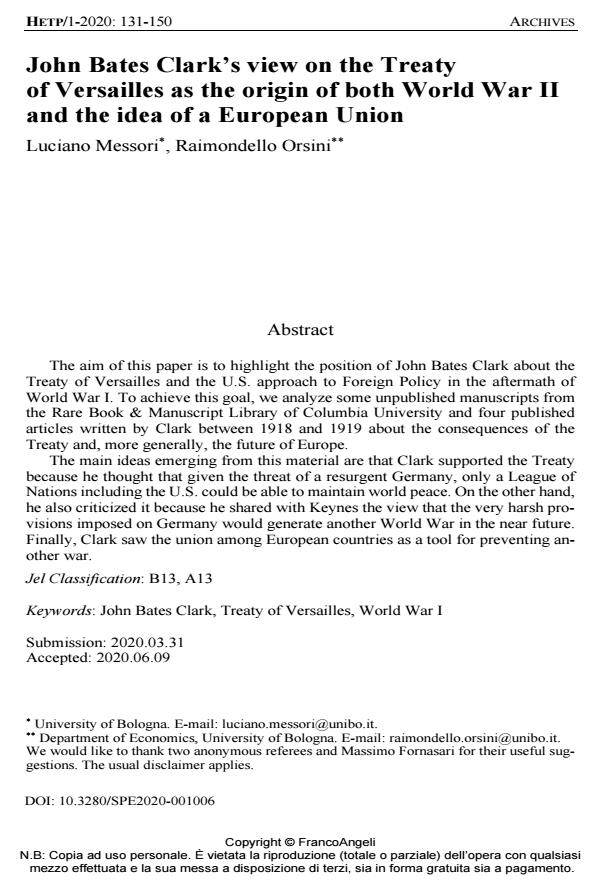John Bates Clark’s view on the Treaty of Versailles as the origin of both World War II and the idea of a European Union
Journal title HISTORY OF ECONOMIC THOUGHT AND POLICY
Author/s Luciano Messori, Raimondello Orsini
Publishing Year 2021 Issue 2020/1
Language English Pages 20 P. 131-150 File size 113 KB
DOI 10.3280/SPE2020-001006
DOI is like a bar code for intellectual property: to have more infomation
click here
Below, you can see the article first page
If you want to buy this article in PDF format, you can do it, following the instructions to buy download credits

FrancoAngeli is member of Publishers International Linking Association, Inc (PILA), a not-for-profit association which run the CrossRef service enabling links to and from online scholarly content.
The aim of this paper is to highlight the position of John Bates Clark about the Treaty of Versailles and the U.S. approach to Foreign Policy in the aftermath of World War I. To achieve this goal, we analyze some unpublished manuscripts from the Rare Book & Manuscript Library of Columbia University and four pub-lished articles written by Clark between 1918 and 1919 about the consequences of the Treaty and, more generally, the future of Europe. The main ideas emerging from this material are that Clark supported the Trea-ty because he thought that given the threat of a resurgent Germany, only a League of Nations including the U.S. could be able to maintain world peace. On the other hand, he also criticized it because he shared with Keynes the view that the very harsh provisions imposed on Germany would generate another World War in the near future. Finally, Clark saw the union among European countries as a tool for preventing another war.
Keywords: John Bates Clark, Treaty of Versailles, World War I
Jel codes: B13, A13
Luciano Messori, Raimondello Orsini, John Bates Clark’s view on the Treaty of Versailles as the origin of both World War II and the idea of a European Union in "HISTORY OF ECONOMIC THOUGHT AND POLICY" 1/2020, pp 131-150, DOI: 10.3280/SPE2020-001006